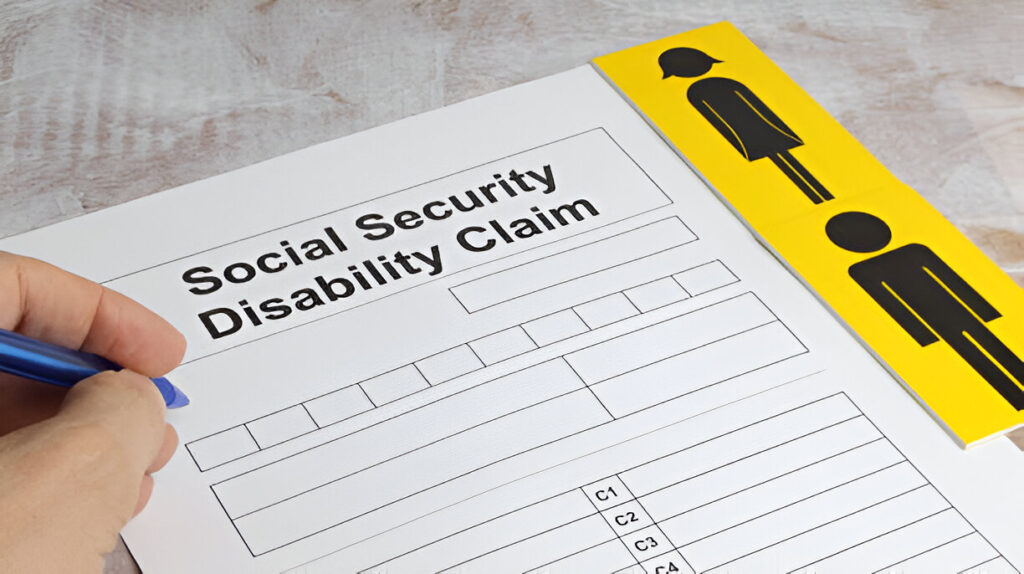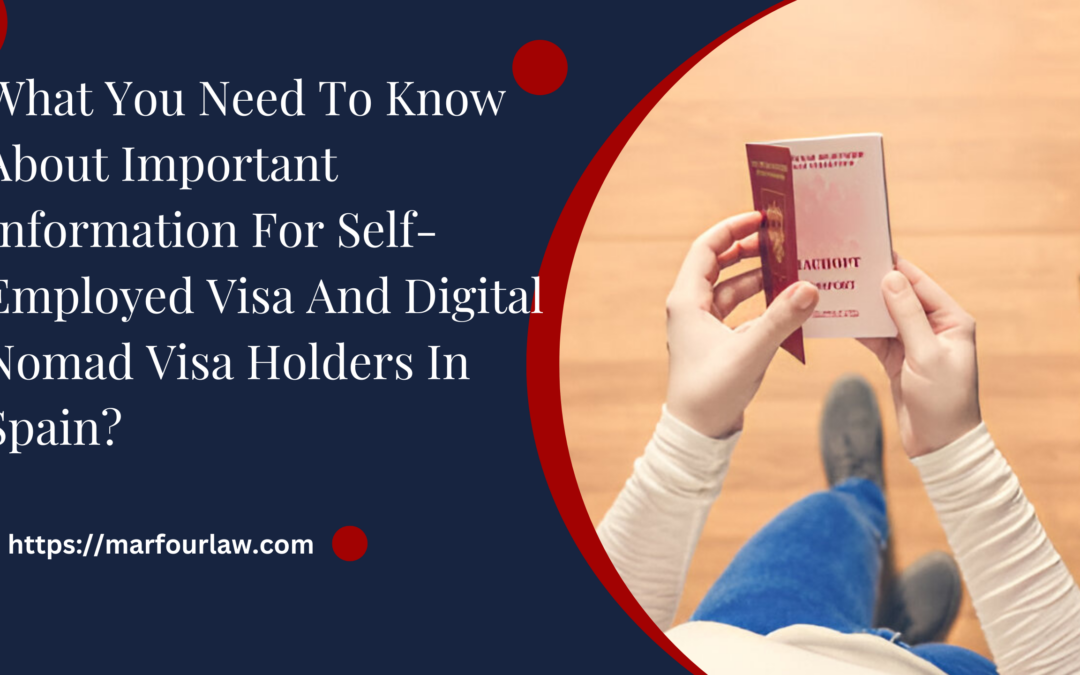If you’re considering making Spain your new home base, there is important information for Self-Employed Visa And Digital Nomad Visa holders that you need to be aware of. Whether you’re planning to move to Spain for work or looking into the requirements for a digital nomad lifestyle, this blog covers all the essential details to make the transition smoother.
From understanding the self-employed visa Spain requirements to exploring options like the autonomous visitor permit in Cyprus, we’ve got you covered with detailed information on how to set yourself up for success.
What Are The Requirements For A Self-Employed Visa And Digital Nomad Visa In Spain?
Thinking about starting your own business adventure in Spain? Let’s dive into what you need to make that dream a reality. Securing a self-employed visa might seem tricky, but with the correct information, you’ll be well on your way to enjoying the Spanish sunshine while running your own show.
Who Can Apply
Before getting into the nitty-gritty, let’s see if you fit the bill. This visa is ideal for those who want to work independently in Spain, whether you’re planning to freelance, launch a startup, or take over an existing business. The key here is proving that your venture will be viable and beneficial to the Spanish economy.
Essential Documents
Gathering the proper paperwork is half the battle won. Here’s what you’ll need in your arsenal:
- Valid Passport: Make sure your passport is up-to-date and has a few extra blank pages. It’s your ticket to entering and staying in Spain legally.
- Detailed Business Plan: Think of this as your blueprint for success. Outline your business idea, target market, financial projections, and marketing strategies. Show them you’ve got a solid plan and the skills to pull it off.
- Proof of Financial Means: You’ll need to demonstrate that you have enough funds to support yourself and your business until it becomes profitable. Bank statements, investment records, or other financial documents will do the trick.
- Professional Qualifications and Experience: Highlight your education, certifications, and work experience that make you the right person for this venture. Think of it as showcasing your superpowers in the business world.
- Health Insurance Coverage: Nobody plans to get sick, but it’s important to have a safety net. Obtain private health insurance that covers you throughout your stay in Spain.
- Clean Criminal Record: You’ll need to provide a certificate proving you have no serious legal issues. It’s all about showing that you’re a trustworthy and law-abiding individual.
- Necessary Licenses and Permits: Depending on your business type, certain professions require specific licenses. Do your homework and ensure you have all the required permissions to operate legally.
Application Process
Ready to take the plunge? Here’s how the process unfolds:
- Prepare and Gather Documents: Double-check that you have all the required documents neatly organized. Missing paperwork can cause unnecessary delays, so attention to detail is your best friend here.
- Submit Your Application: Head over to the Spanish consulate or embassy in your home country to submit your application. Be prepared for an interview where you’ll discuss your business plan and intentions in Spain.
- Await the Decision: Patience is key during this stage. Processing times can vary, but generally, you can expect a response within a few months. Use this time to brush up on your Spanish or plan your business strategies further.
- Arrive in Spain and Register: Pack your bags and make your way to Spain once you get the green light. Upon arrival, you’ll need to register with the local authorities and obtain a foreigner identification number (NIE), which is essential for all your official dealings.
Processing Time and Validity
The entire process requires patience, but good things come to those who wait, right? Typically, processing takes one to three months. The visa is initially valid for one year, with the possibility of renewal if your business remains active and profitable.
Tips for Success
Want to boost your chances of approval? Consider these handy tips:
- Thorough Research: Understand the Spanish market and tailor your business plan accordingly. Showing that you’ve done your homework impresses the authorities and demonstrates commitment.
- Professional Assistance: Consulting with immigration lawyers or business advisors familiar with Spanish regulations can provide valuable insights and help navigate complexities.
- Language Skills: Learning Spanish helps in daily interactions and shows your willingness to integrate into the local culture, which is a big plus in your application.
Embarking on a self-employed journey in Spain is an exciting endeavor filled with opportunities. With the right preparation and perseverance, you’ll be sipping café con leche in your favorite Spanish plaza while running a successful business before you know it. Here’s to new beginnings and thriving ventures under the Spanish sun!
A new contribution system for the self-employed was approved in 2024 in Spain:
Yes, Spain introduced a new contribution system for self-employed workers in 2024, significantly changing how they contribute to social security. Here’s a breakdown of what this new system entails and how it affects self-employed individuals:

Income-Based Contributions
The most notable change is that contributions are now based on actual income rather than a flat rate or chosen income base. This means that your social security contributions will directly reflect your earnings, making the system more equitable.
Contribution Tiers
The new system introduces several income tiers with corresponding contribution rates. Here’s how it works:
- Lower Income Brackets: If your income is on the lower end, you’ll pay less in contributions. This helps ensure that those just starting or earning less aren’t burdened with high social security costs.
- Higher Income Brackets: As your income increases, so do your contributions. The idea is to balance the system, so everyone pays their fair share based on what they earn.
Flexibility in Payment
Under the new system, there’s more flexibility in how self-employed individuals can manage their payments:
- Monthly Adjustments: You can adjust your contribution base up to six times a year, allowing you to align your payments more closely with your fluctuating income.
- Year-End Adjustments: At the end of the year, there’s a reconciliation process where you’ll either pay extra if your income was higher than expected or get a refund if you overpaid.
Minimum and Maximum Contribution Bases
While contributions are now based on income, there are still minimum and maximum limits. This means:
- Minimum Contribution: Even if your income is very low, you’ll still need to contribute a minimum amount, ensuring that everyone maintains at least a basic level of social security coverage.
- Maximum Contribution: Similarly, there’s a cap on contributions for those earning at the higher end, so you won’t pay above a certain limit.
Impact on Pensions and Benefits
This new system also impacts future benefits:
- Pension Calculations: Since contributions are more closely tied to actual income, your pension will better reflect your lifetime earnings. This could lead to a more accurate and fair pension amount when you retire.
- Other Benefits: Maternity, paternity, and sickness benefits are also calculated based on these contributions. With the new system, these benefits will be more aligned with your real income, potentially providing better coverage when you need it most.
Transition Period
Spain has introduced this system with a gradual transition period to help self-employed workers adjust:
- 2024 as a Transition Year: 2024 is seen as a transition year, where self-employed individuals can familiarize themselves with the new system, adjust their contributions, and understand how the changes impact their finances.
The 2024 reform aims to make social security contributions for the self-employed in Spain fairer and more reflective of actual income. While it introduces some complexity, it also provides flexibility and the opportunity for better alignment between what you earn and what you pay. If you’re self-employed in Spain, it’s essential to stay informed about these changes and consider how they might affect your business and financial planning.
How can I report my activity to social security?
Reporting your activity to social security in Spain as a self-employed individual is a crucial part of staying compliant with the law. Here’s how you can go about it:

Registering with Social Security
Before you can report your activity, you need to be registered with the Spanish social security system. If you haven’t done this yet, here’s a quick rundown:
- Head to the Local Social Security Office: Visit the nearest Social Security office (Tesorería General de la Seguridad Social, TGSS) to register. You’ll need your NIE (Foreigner Identification Number), passport, and other relevant documents, such as proof of your self-employment or business registration.
- Online Registration: Alternatively, you can register online through the Social Security website. You’ll need a digital certificate or Cl@ve PIN to access this service.
Choosing Your Contribution Base
When registering, you’ll choose a contribution base, which determines how much you’ll contribute monthly. With the new 2024 system, this base should reflect your actual income. Remember, you can adjust this base up to six times a year.
Monthly Reporting
Once you’re registered, you’ll need to report your activity and make your social security contributions regularly. Here’s how to do it:
- Direct Debit PaymentsSet up a direct debit (domiciliación bancaria) through your bank. This is the most common method, and the social security contributions will be automatically deducted each month based on your declared income.
- Online ReportingIf you prefer, you can manage your contributions and payments online through the Social Security website. This platform allows you to report your income, adjust your contribution base, and pay your dues.
Income Declaration
As part of the new 2024 system, your contributions are tied to your income. Here’s how you report it:
- Annual Income ReportingAt the end of the fiscal year, you’ll need to submit an income report, which will be used to reconcile your social security contributions. If you underpaid based on your actual income, you’ll need to make up the difference. If you overpaid, you may be entitled to a refund.
- Self-Employed Tax ReturnYour tax return (declaración de la renta) also plays a role in this process. The income you declare for tax purposes is cross-referenced with your social security contributions to ensure everything matches up.
Adjusting Contributions
Throughout the year, you can adjust your contribution base if your income changes significantly:
- Updating Your Contribution BaseLog in to the Social Security website and select the option to adjust your contribution base. This helps ensure your payments are aligned with your earnings, avoiding surprises at the end of the year.
Staying Compliant
It’s important to stay on top of your social security obligations to avoid penalties:
- Keep RecordsMaintain accurate records of your income, expenses, and contributions. This will make reporting easier and ensure you have everything you need if your account is ever reviewed.
- Regular Check-InsPeriodically review your contributions and income to make sure everything is in order. The online platform provides a dashboard where you can monitor your payments and make adjustments as needed.
Getting Help
If you’re unsure about the process or have specific questions:
- Consult a ProfessionalConsider hiring an accountant or gestor (a professional advisor) who specializes in Spanish social security and tax laws. They can handle the paperwork and ensure you’re meeting all your obligations correctly.
Reporting your activity to social security in Spain involves regular monitoring and adjustments to ensure you’re contributing the right amount based on your income. By staying organized and keeping on top of your filings, you’ll be able to focus more on growing your business and less on worrying about compliance.
How will I calculate the payment of my autonomous contribution to social security?
If you’re self-employed in Spain, you’re required to make regular payments to the Social Security system. These payments, known as “autónomos contributions,” are your ticket to accessing benefits like healthcare, pensions, and unemployment support. Understanding how these payments work and how to calculate them is essential to managing your finances effectively.

How is the Base Rate Determined?
The first thing you’ll need to know is your base rate, which is the amount your contribution will be calculated on. In Spain, the base rate isn’t something you choose randomly; it’s set within a minimum and maximum range. As of 2024, the minimum base rate is around €960 per month, while the maximum can go up to €4,139. The amount you choose within this range will directly affect how much you pay each month, so choose wisely! If you’re just starting, it might make sense to go for a lower base rate to keep costs down.
Calculating Your Monthly Contribution
Now, let’s get to the nitty-gritty of calculating your monthly contribution. The percentage you’ll apply to your chosen base rate varies depending on your situation. For most autónomos, this rate is around 30.6%. So, if you opt for the minimum base rate of €960, your monthly contribution would be:
€960 x 30.6% = €293.76
If you’re opting for a higher base rate, say €1,200, then your payment would be:
€1,200 x 30.6% = €367.20
Simple enough, right? This calculation gives you a rough idea of what you’ll be paying each month. Keep in mind that these percentages can change, and different factors might influence your rate, such as age, type of work, or any applicable reductions.
What If You Qualify for Reductions?
Speaking of reductions, did you know that you might be eligible for discounts on your contribution? The most common one is the “tarifa plana,” which allows new autónomos to pay a reduced rate for the first 12 to 24 months. Initially, this can be as low as €80 per month. After the first year, the rate gradually increases, but it’s still significantly lower than the standard contribution. This reduction is a lifesaver for many new entrepreneurs trying to get their businesses off the ground.
Adjusting Your Base Rate Over Time
One of the great things about the autónomos system is its flexibility. As your business grows, you might decide to increase your base rate, which would increase your monthly payments but also boost your future benefits. On the flip side, if times get tough, you can lower your base rate to reduce your monthly expenses. However, keep in mind that changes to your base rate can usually only be made a few times a year, so plan accordingly.
For more information, please consult our immigration lawyers or accountants at Marfour International Law Firm. Do not hesitate to get a consultation with one of our immigration lawyers in Spain.
FAQs
How often do I need to pay my autonomous contributions to Social Security?
You need to pay your contributions on a monthly basis. The payments are usually deducted automatically through a direct debit from your bank account.
What happens if I miss a Social Security payment?
If you miss a payment, you may be charged a late fee, and your coverage could be temporarily suspended until you catch up on the contributions.
Can I choose how much I contribute to Social Security?
Yes, in Spain, you can choose your contribution base within certain limits, which will determine how much you pay each month and, ultimately, the benefits you receive. However, new regulations in 2024 may affect this flexibility.
Will my Social Security contributions change over time?
Yes, your contributions may change based on your earnings, age, and any updates to the regulations, such as the new contribution system introduced in 2024.
Conclusion
Managing your autonomous contributions to Social Security in Spain might seem daunting at first, but it’s a crucial part of being self-employed. With the 2024 changes to the system, staying informed and proactive is more important than ever. By understanding how to calculate your payments, report your activities, and keep up with your obligations, you can ensure that you’re fully compliant and protected under the Spanish Social Security system.

